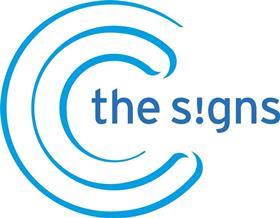The toll of pandemic-related delays on cancer patients has highlighted the need for solutions such as C the Signs, an evidence-based AI system helping to fast-track patients to the most appropriate direct access diagnostic or two-week-wait cancer referral.
![]()
This is paid-for content from our commercial partners. Find out more.
The pandemic has had a truly catastrophic impact on cancer services in the NHS since it began almost two years ago.
Earlier this month, Public Health England finally published the data for the first year of the pandemic (between April 2020 and March 2021) which showed a particularly bleak picture.
There were over 39,000 fewer patients who were diagnosed with cancer compared to the previous year, with 300,000 fewer two-week-wait cancer referrals. NHS England chief executive Amanda Pritchard reported to the Public Accounts Committee that the majority of these missed patients were likely to have prostate, breast or lung cancer.
Sponsored by 
The number of missed patients is particularly concerning as each week a cancer diagnosis is delayed, the risk of death increases by up to 3.2 per cent. This was matched with a recent review conducted by University College London which estimated that at least 10,000 patients will die prematurely of cancer due to pandemic-related delays (with many more likely to follow as a result of late-stage diagnosis).
The pandemic has also caused overwhelming demand in primary care. In October 2021 primary care delivered 34 million appointments (a 10 per cent rise compared to pre-pandemic levels), with a 15 per cent fall in full-time equivalent GP workforce.
In addition, with 35 per cent of appointments still being delivered remotely through telephone or video consultation, there is a challenge to risk assess patients safely for cancer and refer these patients on the best clinical pathway.
Sadly, the pandemic’s effect on cancer is far from over (particularly with the omicron variant on the rise). The National Audit Office report published this month reviewed the impact of the pandemic until September 2021, estimating that the drop in two-week-wait cancer referrals has been up to 740,000, with up to 60,000 patients with cancer entirely missed by the system.
The NHS therefore needs technologies and solutions which can accurately identify missed cancer patients and fast track at-risk patients to vital services without overwhelming the system, which is already struggling with a 5.9 million elective backlog.
What can be done?
C the Signs is an evidence-based AI system (integrated with EMIS, SystmOne and Vision) that supports healthcare professionals to identify the earliest signs of cancer and fast track patients to the most appropriate direct-access diagnostic or two-week-wait cancer referral – all in under 30 seconds. Pathways are configured to local availability (across multiple hospital and community providers) and can be rapidly changed in response to pandemic influences and changing guidelines.
By implementing smart referral forms, 100 per cent of two-week-wait referrals are clinically appropriate, with all clinical information pre-populated (including prehab, accessibility, MRI checklist, and pre-operative information). Alongside this, all patients receive information about the referral, which is available in multiple languages and easy-read formats (sent via SMS, email or printed). This combination of features ensures triage is completed in primary care for all patients and reduces unnecessary demand in secondary care.
Every patient who is risk assessed using C the Signs is automatically safety-netted on to a practice level dashboard. This has been critical during the pandemic to ensure the safe follow-up of patients on a suspected cancer pathway. C the Signs also provides real-time data for practices and primary care networks to monitor their cancer activity and performance, as well as providing health intelligence reports for Clinical Commissioning Groups, Integrated Care Systems, Alliances and Health boards.
In 2021, C the Signs conducted over 90,000 cancer risk assessments (both face-to-face and remote cancer risk assessments) and diagnosed over 5,000 patients with a new cancer diagnosis. Of the 5,000 patients diagnosed with cancer, 15 per cent had prostate cancer, 14 per cent had breast cancer, and 5 per cent had lung cancers. In addition to detecting cancer, C the Signs safely excluded 6 per cent of patients risk assessed, avoiding unnecessary tests or referrals, saving £1.4m for the NHS and 375 days in outpatient clinics.
Most exciting of all, despite a pandemic year, C the Signs has supported GP practices in detecting more patients with cancer (than pre-pandemic levels), but with fewer two-week-wait cancer referrals (supporting the elective recovery).
In early 2022, C the Signs will be launching the “Case Finder tool” to support practices and health authorities to identify these missed cancer patients through scanning for key factors across a practice list, identifying patients who are at high risk and most vulnerable.
C the Signs is committed to helping all patients have the best chance of survival through early cancer detection. In partnership with NHS organisations we are already seeing the benefit of the technology, and continue our efforts to find the 60,000 cancer patients missed, working towards the NHS Long Term Plan ambition of diagnosing 75 per cent of patients in the early stages.
For further information, please email info@cthesigns.co.uk
Dr Bea Bakshi is a GP and co-founder of C the Signs, and NHS England clinical entrepreneur.
C the Signs is used by over 1,000 GP practices and over 7,000 healthcare professionals across primary care in the UK.
Twitter: @CtheSignsTool
LinkedIn: linkedin.com/in/cthesigns


























